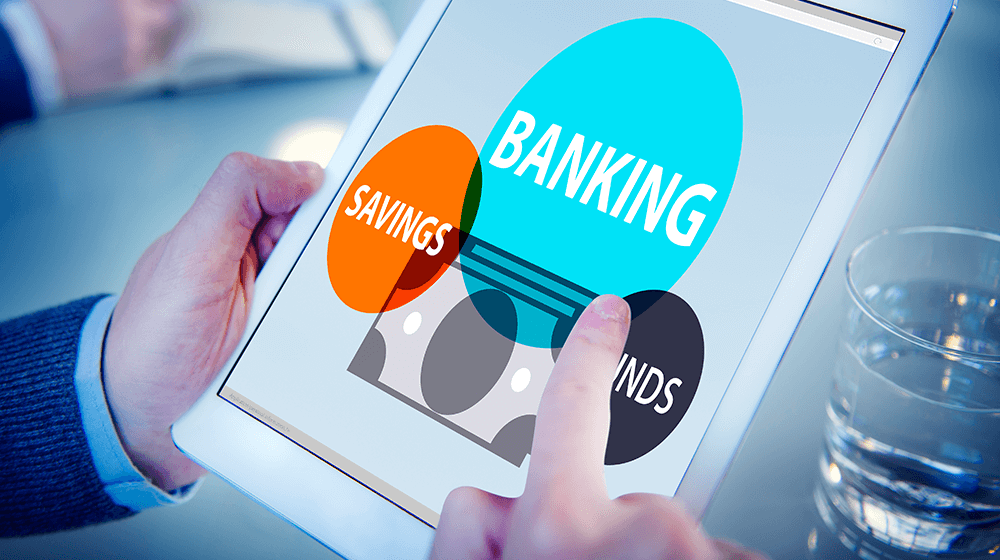Bank Account Opening Documents You Can't Forget to Avoid Setbacks
Bank Account Opening Documents You Can't Forget to Avoid Setbacks
Blog Article
Explore Your Alternatives for Hassle-Free Checking Account Opening Near You
In today's monetary landscape, the procedure of opening a bank account can frequently appear daunting, yet it does not have to be. Understanding the different types of accounts, needed documentation, and the actions involved can substantially simplify this task.
Comprehending Savings Account Types
Understanding the different kinds of bank accounts is vital for making enlightened financial choices. Checking account normally come under several classifications, each made to satisfy particular financial demands. The most common kinds consist of interest-bearing accounts, inspecting accounts, and deposit slips (CDs)
Financial savings accounts are optimal for individuals wanting to store funds while earning interest. These accounts commonly have restricted withdrawal choices but normally provide greater rate of interest compared to examining accounts. Examining accounts, on the other hand, are made for daily purchases, providing easy access to funds via debit cards, checks, and electronic transfers. While they normally make little to no rate of interest, they provide convenience for taking care of everyday expenditures.
Certifications of deposit (CDs) are fixed-term accounts that call for funds to be deposited for a given period, often yielding higher rate of interest than traditional savings accounts. However, very early withdrawal might incur fines. Other specialized accounts consist of money market accounts, which incorporate features of financial savings and checking accounts, and individual retired life accounts (IRAs), which use tax benefits for retirement financial savings. Recognizing these account types equips people to select the most appropriate choices for their economic objectives.
Choosing Between Online and Neighborhood Bankss
When selecting a bank, people frequently deal with the choice in between online and regional bankss, each offering unique advantages and disadvantages. On the internet bankss commonly provide higher rates of interest on interest-bearing accounts and lower costs as a result of reduced expenses prices. bank account opening. Their 24/7 availability allows consumers to manage their funds easily from anywhere, making them an attractive choice for tech-savvy individuals

Security is one more essential factor to consider. While on the internet bankss make use of innovative encryption and safety procedures, some individuals may still really feel more comfy with the physical presence of a neighborhood bank, where they can see staff and operations firsthand.
Ultimately, the decision between online and regional bankss relies on individual choices and financial needs. Examining variables such as convenience, costs, rates of interest, and client service will certainly assist people pick the financial solution that best fits their lifestyle.
Required Files for Account Opening
Before beginning the account opening procedure, it is vital to gather the needed paperwork to make certain a smooth experience. Different bankss might have specific demands, yet there are common documents that you will normally require.
To start with, a valid government-issued image recognition is crucial. This can include a motorist's certificate, key, or nationwide copyright. Second of all, evidence of address is usually visite site needed; appropriate files may include energy expenses, lease arrangements, or bank declarations that plainly show your name and present address.
Additionally, relying on the kind of account you wish to open, you might require to give your Social Safety number or Tax Recognition Number for tax objectives. If you are opening a joint account, both events will require to present their identification and evidence of address.

Actions to Open Your Account
Opening a bank account includes a straightforward series of actions that can simplify your financial experience. To start, select the sort of account that ideal fits your economic needs, whether it's a monitoring, financial savings, or a specialized account. As soon as you've made your selection, visit your chosen bank's branch or browse to their web site to initiate the procedure.
Next, collect the called for documents, which commonly includes evidence of Go Here identification, such as a government-issued ID, and proof of address, like an utility bill. bank account opening. Some bankss might likewise request your Social Safety and security number or tax recognition number
After assembling your documents, complete the application, either online or in-person. Make sure that all info is precise and complete to prevent hold-ups.
When you send your application, the bank will review your information, which may draw from a few minutes to a pair of days depending on the organization. If approved, you'll obtain information regarding your new account, including your account number and any kind of connected debit or bank card. Make a first down payment to activate your account, and you are all set to start banking.
Tips for a Smooth Experience
To guarantee a smooth bank account opening experience, it is advantageous to be well-prepared and educated about what to expect. Start by collecting all necessary documentation, including a legitimate government-issued ID, evidence of address, and your Social Protection number. This prep work will accelerate the process and stop YOURURL.com unneeded hold-ups.

Additionally, it is a good idea to arrange a visit with a bank representative. This can help guarantee that you obtain customized help and prevent long haul times.
When at the bank, ask inquiries to make clear any attributes or terms related to your account. Comprehending the great print can protect against future aggravations.
Final Thought
In verdict, detailed study and preparation are necessary for a seamless bank account opening up experience. By understanding various account kinds, evaluating the benefits of neighborhood versus on the internet bankss, and gathering essential paperwork, people can browse the process efficiently.
The most common kinds include cost savings accounts, checking accounts, and certificates of deposit (CDs)
These accounts often have actually limited withdrawal alternatives however typically use greater interest prices compared to checking accounts.Certifications of down payment (CDs) are fixed-term accounts that need funds to be deposited for a specific period, often yielding higher rate of interest prices than standard financial savings accounts. Various other specialized accounts include cash market accounts, which integrate attributes of cost savings and inspecting accounts, and private retired life accounts (Individual retirement accounts), which provide tax benefits for retired life savings. To begin, select the type of account that ideal suits your monetary needs, whether it's a monitoring, cost savings, or a specialized account.
Report this page